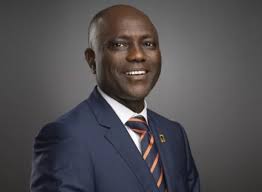Not a few Nigerians were apprehensive of the form and style of leadership David Bonaventure Alechenu Mark would bring to the Senate when he emerged as the president of the red chamber of the National Assembly in 2007. The reason for this scepticism is not far-fetched. The antecedents of the former signals officer of the Nigerian Army as both military administrator of Niger state and minister of communications under the General Ibrahim Babangida junta had portrayed Mark as dictatorial and anti-masses; traits which are clearly at variance with democratic ethos.
Ironically, after nearly eight years on the saddle as the presiding officer of the sixth and seventh National Assembly, Nigeria’s number three citizen did not only prove the political pundits wrong but went further to expand the democratic space and bring ingenuity to bear in the discharge of his statutory duties. Thus, rather than being draconian Mark’s leadership, characterised by subtle diplomacy and ingenious methodology, infused stability in the Senate, the Presidency and the nation as a whole.
It is quite obvious that the doctrine of necessity postulated by Mark and invoked by both the Senate and the House of Representatives on Tuesday, February 9, 2010 to make Vice President Goodluck Jonathan as he then was, the Acting President of Nigeria, was a landmark feat by Mark. The doctrine was invoked to resolve the lingering constitutional crisis in the wake of the 78 days absence of then President Umaru Musa Yar’Adua’s (now late) on account of his medical trip abroad. Yar’Adua had advertently or inadvertently failed to transmit a letter to the National Assembly empowering Jonathan to be acting president as required by the 1999 Constitution. This lacuna, probably not envisaged by the drafters of the constitution, created leadership vacuum at the Presidency.
Mark’s Senate rose to the occasion by invoking the doctrine of necessity, a novelty aimed at ending the constitutional logjam and thereby saving the country from the precipice. Announcing the resolution with a philosophical note, the president of the Senate said, “The doctrine of necessity requires that we do what is right when faced with a situation that was not contemplated by the constitution. And that is precisely what we have done today.”
Prior to Mark’s ascension to the nation’s third most exalted office, the red chamber had suffered a great deal of instability in its leadership, which adversely affected its legislative and oversight functions. But Mark’s emergence since 2007 has brought stability and steady progress to the growth and development of the legislature as an arm of government. By endearing himself to other senators, Mark brutally dealt the death knell on the proverbial banana peel which swept away his successors from office, namely, Evan Enwerem, late Chuba Okadigbo, Anyim Pius Anyim, Adolphus Wabara, and Ken Nnamani.
Beyond stabilising the executive and legislative arms of government, Mark has also intervened in restoring order to the polity given his role in ending the oil subsidy strike, the prolonged Academic Staff Union of Universities (ASUU), Academic Staff Union of Polytechnics/Colleges of Education Academic Staff Union (COEASU) and Nigerian Medical Association (NMA) strike actions. These strikes, some of which lasted for over nine months, stifling the socio-economic and political development of the country, were reported resolved by Mark’s ‘tactical maneuvers’, negotiation skills, and tenacity of purpose.
Mark’s legislative astuteness can also be gleaned from the passage of certain critical bills like the Freedom of Information Bill (now an Act), the state of emergency in the North-eastern states of Borno, Adamawa and Yobe, and the Petroleum Industry Bill (at the final stage of passage) by the Senate. These, among others, have facilitated and enhanced governance of the country. But Mark is not done as he has promised that the impending constitutional review would address the issue of state creation in order to bring governance closer to the grassroots.
In spite of these sterling leadership qualities, David Mark has got some ‘ghosts’ too that are still haunting him. Chief of these is his purported remark that telephones were not meant for the poor when he was minister of communication, suggesting that only the rich should use the communication device as a form of luxury. This statement has stuck like a sore thumb that has defied healing despite his persistent denials and clarifications. The public has since taken umbrage against him on this score. And he just may need to do more clarification or disclaimer in a bid to assuage the vexed public.Again, as military administrator of Niger state, the Otukpo, Benue state-born General had threatened to deport non-indigenes from Niger state. Mark also carries the baggage of having superintended over the collapse of Nigeria’s foremost telecommunications firm, NITEL.
But far more consequential is the public odium against Mark for presiding over the biggest money-guzzling National Assembly in Nigeria’s history, a factor that has deprived the nation of the much-needed funds for infrastructural development. This exposé came from no less a personality than the immediate past Governor of Central Bank of Nigeria and now Emir of Kano, Malam Sanusi Lamido Sanusi. The fiery CBN governor had revealed, to the chagrin of hapless Nigerians, that members of the National Assembly were cornering 25% of Nigeria’s budget funds to themselves.
How Mark wriggles out of this negative public perception of him will, to a large extent, determine his political future as the Seventh National Assembly draws the curtain in May 2015.
Blueprint gives you the latest Nigerian news in one place. Read the news behind the news on burning National issues, Kannywood, Videos and the Military



